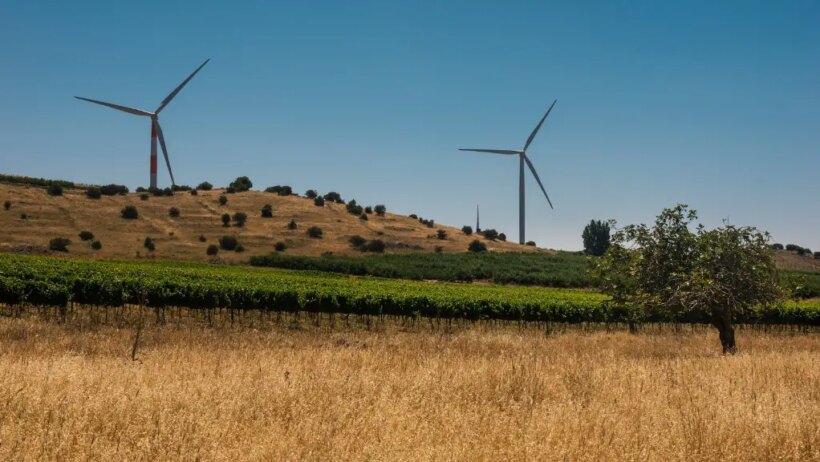Coal burning has long been at the heart of our energy generation practices, particularly in industrialized nations. However, as climate change increasingly dominates public discourse, it begs the question: Does coal burning contribute to global warming? The interplay between fossil fuel combustion and climate dynamics reveals a complex reality that warrants careful examination.
The primary mechanism through which coal burning impacts global warming lies in the greenhouse gas emissions produced during combustion. When coal is burned, carbon dioxide (CO2), methane (CH4), and nitrous oxide (N2O) are discharged into the atmosphere. Among these, carbon dioxide is the most significant contributor; it is well documented that CO2 is a potent greenhouse gas, trapping heat in the Earth’s atmosphere and altering the natural climate dynamics.
Consider the scale of coal usage globally. Despite the devastating environmental implications, coal remains a primary energy source for many countries. According to estimates, coal accounts for nearly 40% of the world’s electricity generation. This heavy reliance raises a pivotal question: Can we decouple economic advancement from coal combustion? The continued use of coal inexorably ties nations to high levels of carbon emissions, further intensifying the greenhouse effect.
Additionally, coal-fired power plants emit not only carbon dioxide but also a range of toxic elements, including sulfur dioxide (SO2), heavy metals, and particulate matter. While carbon emissions are pivotal in the context of climate change, the ecological damage inflicted by these other pollutants cannot be overlooked. Sulfur dioxide, for example, contributes to acid rain, which devastates forests, aquatic ecosystems, and even human infrastructure.
Delving deeper, it’s essential to scrutinize the life cycle of coal, from mining to combustion and beyond. Coal extraction, particularly through methods such as mountaintop removal and strip mining, has irreversible implications on the landscape. The devastation caused not only releases stored carbon but disrupts ecosystems and water sources, thus exacerbating climate-related vulnerabilities. When one considers the entire life cycle, the contributions of coal to global warming become even more alarming.
Transitioning to natural gas—a cleaner fossil fuel—has been presented as a short-term solution. While natural gas burns more cleanly than coal, it is not without its own challenges. Natural gas extraction often involves hydraulic fracturing, or fracking, which can release methane, a gas that is significantly more effective at trapping heat than carbon dioxide over a short period. Therefore, merely shifting from coal to natural gas does not guarantee a net benefit to the climate. It may simply transfer the environmental burden to another type of fossil fuel.
Renewable energy sources, such as wind, solar, and hydroelectric power, offer affluent alternatives that have been gaining traction. With advances in technology and decreasing costs, transitioning away from coal and other fossil fuels is becoming more feasible. These renewable sources emit little to no greenhouse gases over their lifetime, thereby significantly reducing emissions associated with electricity generation. The energy sector must embrace such innovations to mitigate global warming and promote long-term sustainability.
Nevertheless, the societal and economic ramifications of phasing out coal can be daunting. Many regions are heavily reliant on the coal industry for employment, and abrupt transitions could lead to socio-economic upheaval. Recognizing and addressing these challenges is key in any meaningful shift towards cleaner energy; it’s vital to prioritize worker retraining and economic diversification efforts in coal-dependent communities.
Public awareness plays an instrumental role in combating climate change linked to coal burning. By fostering a culture of informed decision-making, communities can actively advocate for cleaner alternatives and support policies that promote energy efficiency and renewable resources. Grassroots movements have sprung up worldwide, illustrating that collective action can instigate change. Consumer choices also matter—opting for green energy or supporting businesses committed to sustainability can drive demand away from fossil fuels.
International agreements, such as the Paris Agreement, highlight the global consensus on the urgency of addressing climate change. These accords recognize the emotional and tangible stakes involved, encouraging individual nations to commit to reducing their greenhouse gas emissions. Nations are increasingly scrutinized under their adherence to such commitments, prompting a renewed focus on reducing reliance on coal and scaling up renewables.
In conclusion, coal burning undoubtedly plays a significant role in contributing to global warming. Yet, the onset of this crisis presents an opportunity for transformative change. By recognizing the multifaceted implications of coal and harnessing the potential of alternative energy sources, humanity can begin to forge a sustainable path forward. It requires a collective rethinking of our energy policies and practices, integration of technological advancements, and, critically, an unwavering commitment to fostering a greener future.
Ultimately, as we grapple with the ramifications of our choices today, it is imperative to approach this issue with a mindset not just of remorse for past actions, but of hope for a renewed planetary health, anchored in sustainability and resilience against the pressing challenges posed by climate change.








